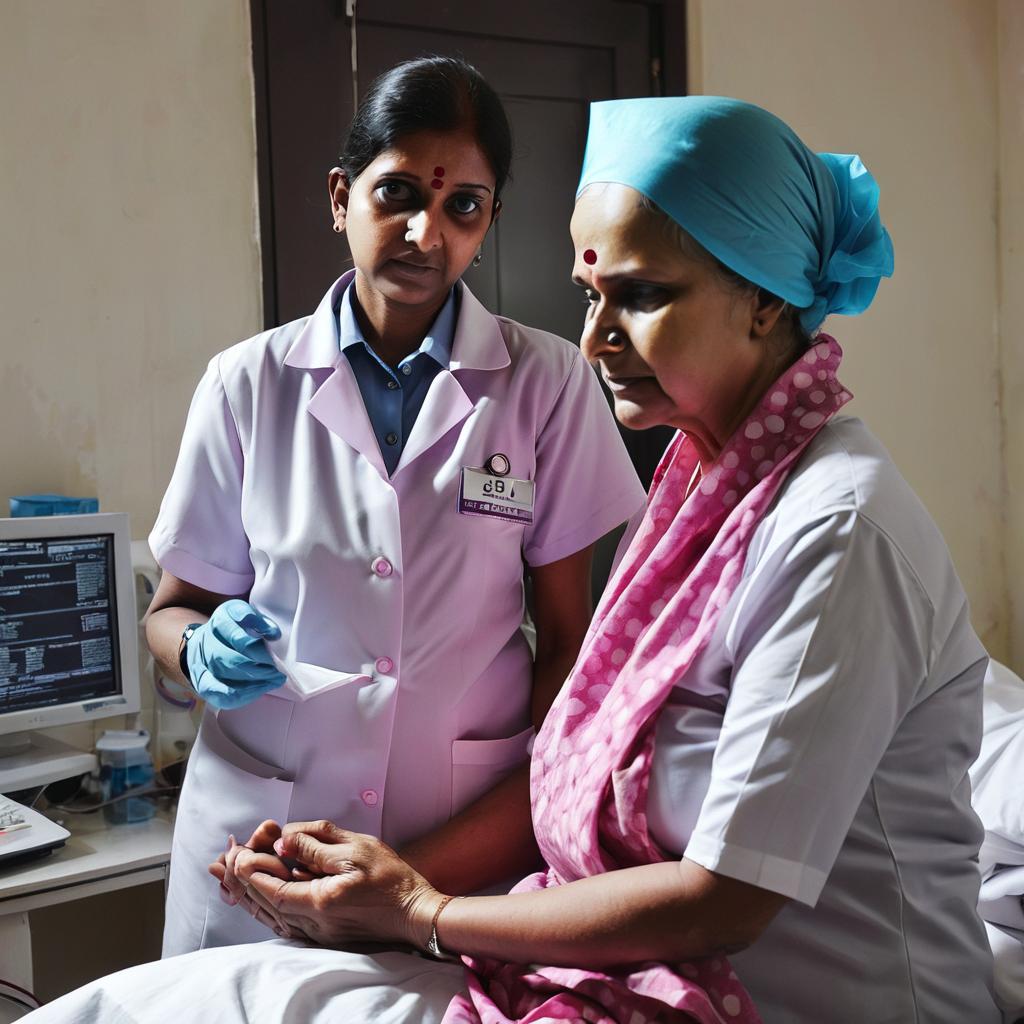Is India on the Verge of Becoming New Cancer Capital?

A recent report by Apollo Hospitals has shed light on a concerning trend in India’s healthcare landscape: the increasing burden of non-communicable diseases (NCDs). These include cancer, diabetes, hypertension, cardiovascular diseases, and mental health disorders, which have reached critical levels, significantly impacting the nation’s health.
Cancer, in particular, has emerged as a major concern, with India potentially on track to become the new “cancer capital” of the world. According to the report, the number of cancer cases is expected to rise from almost 14 lakh in 2020 to 15.7 lakhs by 2025. This alarming trend underscores the urgent need for effective preventive measures and early detection strategies.
The report highlights that cancer diagnoses in India occur at a younger age compared to other nations, with breast, cervix, and ovarian cancer being the most frequent among women, and lung, mouth, and prostate cancer predominant among men. Early screening and diligent monitoring play a crucial role in improving survival rates, especially for breast cancer, where early detection significantly enhances prospects.
However, one of the significant hurdles in India’s fight against cancer is the inadequate screening rates, which fall far below global benchmarks. This emphasizes the pressing need for proactive steps in preventive healthcare to tackle the growing cancer burden effectively.
Aside from cancer, the report also brings attention to other health concerns plaguing the nation. Mental health disorders, notably depression, have seen a concerning uptick, particularly among individuals aged 18 to 40. Chronic stress, prevalent among both young adults and seniors, contributes to a rise in hypertension and diabetes, especially affecting women.
Obesity, another risk factor for NCDs, has surged, with unhealthy waist-to-hip ratios and abdominal fat becoming common among the population. High blood pressure and prediabetes are also on the rise, particularly among the younger population.
To address these alarming trends, preventive measures are crucial. The World Health Organization recommends lifestyle changes such as avoiding tobacco and excessive alcohol consumption, getting vaccinated against HPV and hepatitis B, and maintaining a healthy diet and regular exercise routine.
Also Read: 7 Tips for Eating Healthy During Pregnancy
In conclusion, India faces a formidable health challenge, with NCDs like cancer posing a significant threat to public health. Effective preventive strategies, early detection, and prompt treatment are essential to mitigate the impact of these diseases and improve the overall health and well-being of the population.
Q&A
Q: What are the main findings of the recent report by Apollo Hospitals regarding India’s healthcare landscape?
A: The report highlights a concerning trend of rising non-communicable diseases (NCDs), including cancer, diabetes, hypertension, cardiovascular diseases, and mental health disorders, significantly impacting the nation’s health.
Q: How does the report suggest India could potentially become the new “cancer capital” of the world?
A: The report projects a steady increase in cancer cases in India, with the number expected to rise from almost 14 lakh in 2020 to 15.7 lakhs by 2025. This alarming trend indicates the urgent need for effective preventive measures and early detection strategies.
Q: What are some of the key findings regarding cancer diagnoses in India compared to other nations?
A: Cancer diagnoses in India occur at a younger age, with breast, cervix, and ovarian cancer being predominant among women, and lung, mouth, and prostate cancer among men. Early screening and diligent monitoring play a crucial role in improving survival rates, particularly for breast cancer.
Q: What are the major hurdles in India’s fight against cancer, according to the report?
A: The report highlights inadequate screening rates in India, falling below global benchmarks. This underscores the pressing need for proactive steps in preventive healthcare to effectively tackle the growing cancer burden.
Q: Aside from cancer, what other health concerns does the report address?
A: The report also brings attention to rising mental health disorders, chronic stress, obesity, high blood pressure, and prediabetes, which are contributing to the overall health crisis in India.
Also Read: 9 Ways to Lose Belly Fat
Q: What preventive measures are recommended by the World Health Organization to address these health concerns?
A: The WHO recommends lifestyle changes such as avoiding tobacco and excessive alcohol consumption, getting vaccinated against HPV and hepatitis B, maintaining a healthy diet, regular exercise, and ensuring safe and appropriate use of radiation in healthcare.











